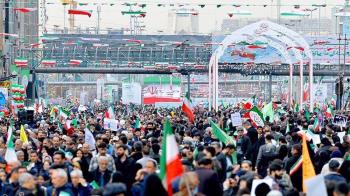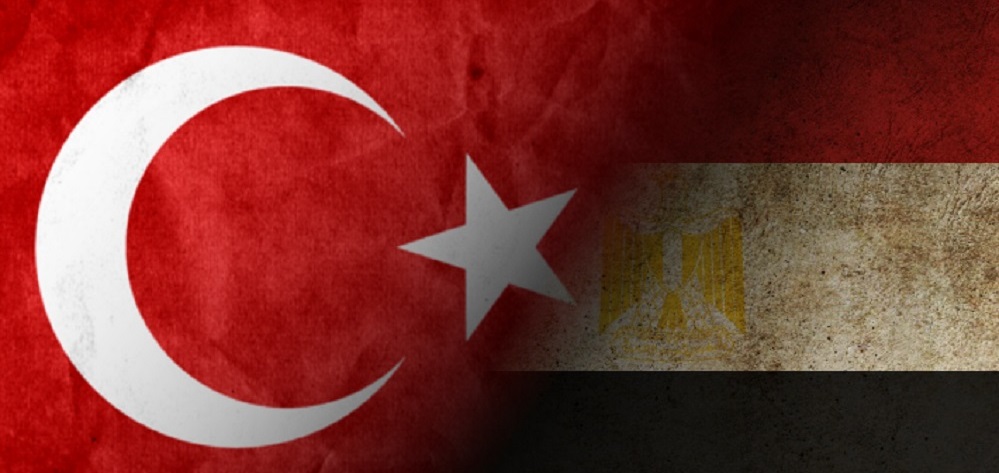Alwaght- Following Egypt’s Sinai Peninsula mosque attack that killed over 300 people last week, waves of reactions and sympathy messages poured towards the Egyptian nation and government.
What was eye-catching among the others was the reaction of the Turkish government which beside paying homage to the victims announced a day of mourning in Turkey.
Bekir Bozdag, the deputy prime minister of Turkey, in the wake of the attack said that his country was ready to support Egypt against terrorism.
“Turkey, like always, stands with the people and the government of Egypt. Turkey is ready for all kinds of cooperation in the fight against terror without any 'ifs' and 'buts'," he was quoted as saying.
This Ankara stance come while Turkey and Egypt cut off diplomatic ties following military coup of 2013 that took down Mohamed Morsi, the post-revolution president of Egypt. The relations of the two regional countries is yet to be normalized after four years.
Can the Turkish government’s announcement of a day of mourning be read as a positive message sent to Cairo from Ankara for their diplomatic ties to be restored? And more importantly, what is the necessity that pushes Turkey to go for de-escalation of tensions with Egypt?
Preventing more pressure on the Muslim Brotherhood
Turkey under the rule of the Justice and Development Party (AKP) is one of the staunchest supporters of the Muslim Brotherhood movement in the region. It started warm relations with Egypt when in 2012 the Egyptians picked Mohamed Morsi, a candidate affiliated with the Islamist group, as their first president after the uprising that had ousted President Hosni Mubarak a year before.
But Saudi Arabia, the Israeli regime, and the US were far from being able to come to terms of the Egyptian people’s election of Morsi due to conflict of ideology and policy with Mubarak dictatorship's replacement. The three countries exploited the highly troubled economic and political conditions of Egypt to prepare the ground for the army coup-plotters to seize the rule from the first democratically-elected president of Egypt, though the mismanagement and monopolistic approach of Morsi government itself had a hand in sharpening the military's motivation to stage the power grab.
After the putsch, the government of President Abdel Fattah el-Sisi, the army chief under Morsi, labeled Muslim Brotherhood a terrorist group, detained its leaders, and expectably announced its activities illegal in the country.
The recent terror attack are expected to bring forth more pressures against the Muslim Brotherhood. So, the Turkish government’s sympathy and offer of anti-terror help to Cairo is in fact a step to steer clear of further strains on the movement and even pave the way for mending of its ties with the government of el-Sisi.
The Egyptian government is well aware that sustainable stability in the country requires social and political factions' tuning in with state’s policies. Muslim Brotherhood is one of the influential political factions of the country. The government unavoidably needs to talk to the movement and reach an agreement with it. Turkey, meanwhile, can be an appropriate mediator.
Rivalry for new alliances
Now a fierce competition is under way in the region, with various actors seeking to get to their sides other players and so isolate the rivals. Meanwhile, gaps in Turkish-Saudi relations have grown wider after beginning of Qatar diplomatic crisis with members of Saudi-led (Persian) Gulf Cooperation Council (PGCC). Ankara is strongly opposed to the PGCC's anti-Qatari measures including imposing an all-out blockade on the Arab country and threatening it with military action. The Turkish leaders went far to protect Qatar as their ally, signing a security-military cooperation deal with Doha leadership that resulted in setting up Turkish military base in Qatar in show of alliance.
Considering Qatar’s backing for the Muslim Brotherhood a serious threat to their interests, regional policies, and even to their throne, Saudi rulers are struggling to oust the Al Thani dynasty in Qatar and if possible install a pro-Riyadh regime in Doha.
Additionally, there is a competition between Saudi Arabia and Turkey over the Arab-Israeli peace case. Turkey has the back of the Palestinian Hamas group and Saudi Arabia is a patron of the rival Palestinian Authority, with both seeking a key role in efforts to put an end to the decades-long Israeli-Palestinian dispute.
The two regional actors are also seeing their once-united approaches diverging in Syria. Ankara is firmly against split of Syria and independence of the Kurds in the north of the war-ravaged country, a stance took the Turkish President Recep Tayyip Erdogan to cooperate with the like-minded, pro-Damascus Iran and Russia. On the opposite side stands the kingdom which favors Syria partition and Kurdish independence as a shared interest and plan with Tel Aviv and Washington.
The Egyptian government is relatively playing role in all of these developments. Cairo role playing in the regional rivalry scene makes Turkey grow concerns about more Egyptian-Saudi closeness in the shadow of a vacuum of Cairo-Ankara ties. To steer clear of that, the Turkish leaders are alluding to the readiness of Turkey to settle rifts and diplomatically normalize with Cairo.



























